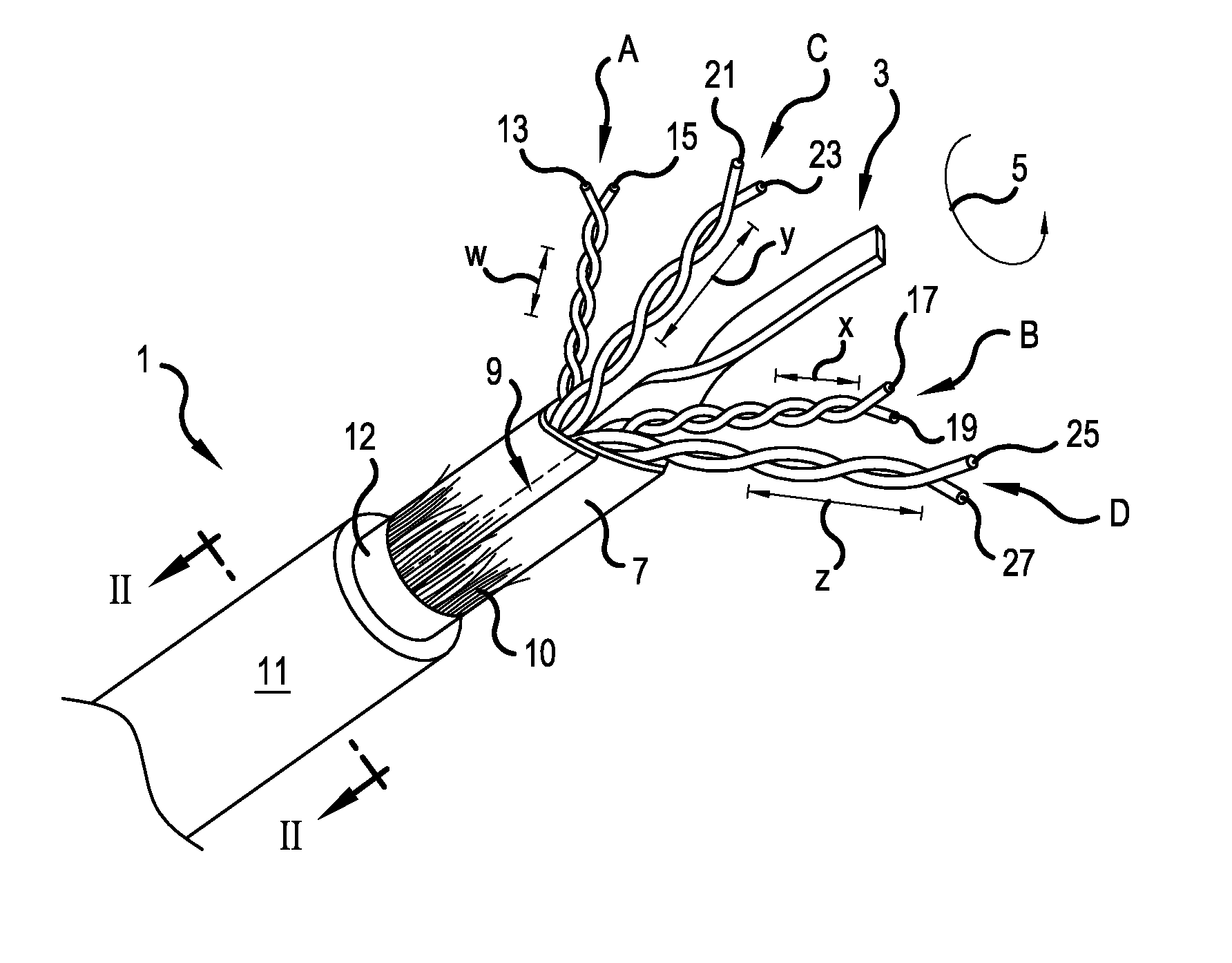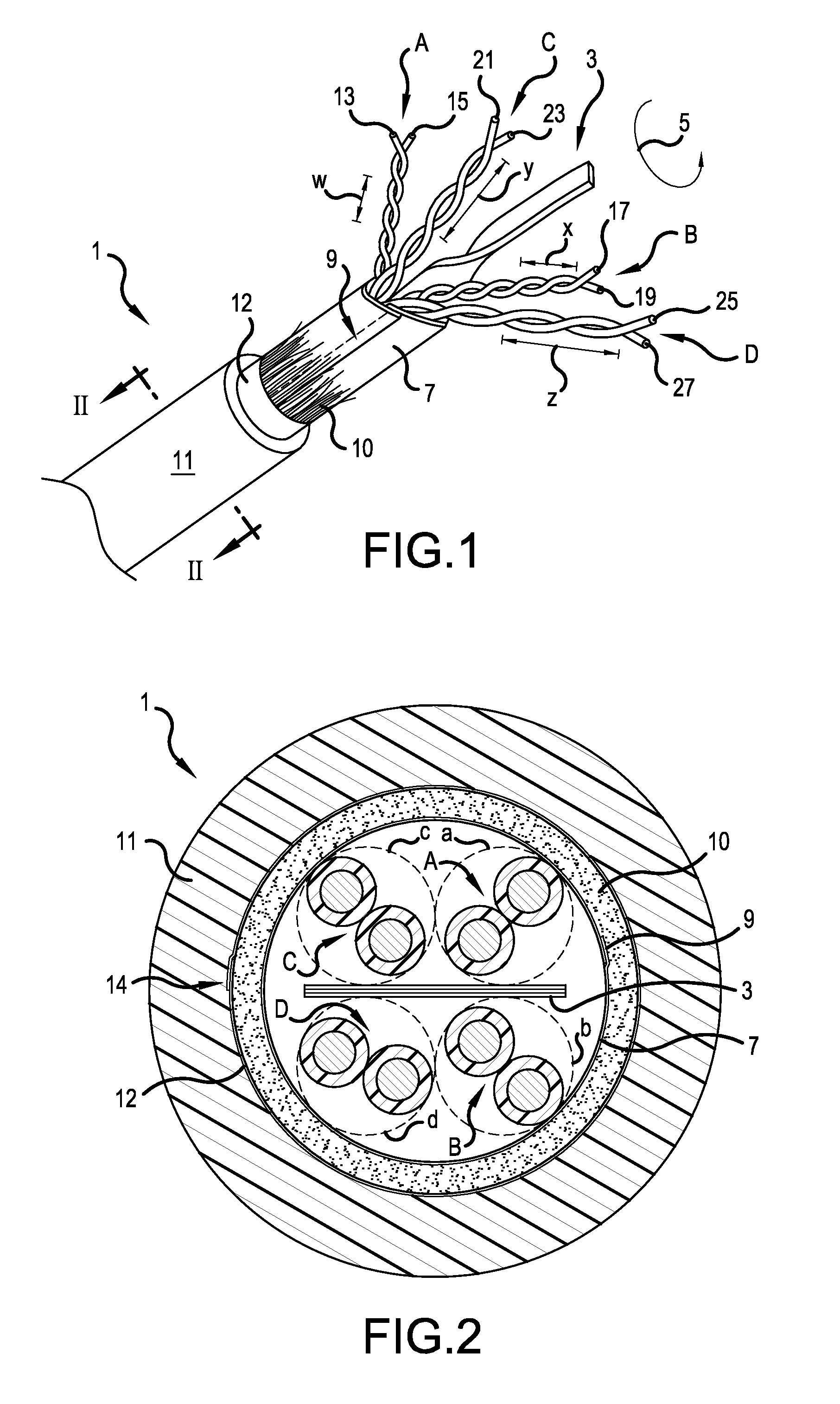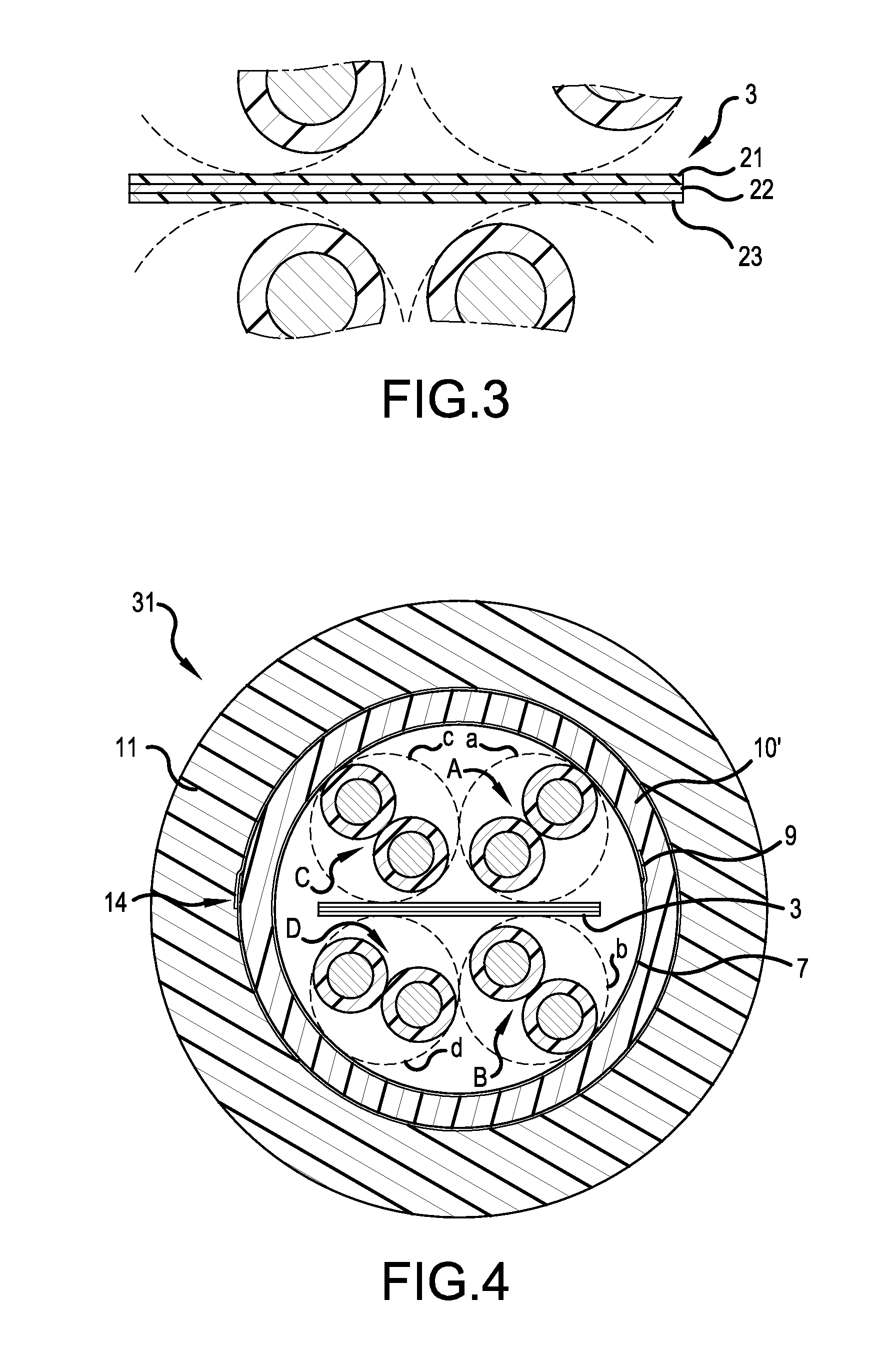Shielded cable with UTP pair environment
a shielding cable and environment technology, applied in the direction of cables, insulated conductors, conductors, etc., can solve the problems of reducing the electrical performance of the twisted pair of the cable at high data rates, and complicating the cable design to meet performance. performance, the effect of increasing the signal attenuation and reducing the electrical performance of the twisted pair
- Summary
- Abstract
- Description
- Claims
- Application Information
AI Technical Summary
Benefits of technology
Problems solved by technology
Method used
Image
Examples
first embodiment
[0029]FIG. 1 is a perspective view of a twisted pair cable 1, in accordance with the present invention. FIG. 2 is a cross sectional view of the cable 1 taken along line II-II in FIG. 1. A cable core includes first, second, third and fourth twisted pairs A, B, C and D, respectively. The cable core is surrounded by a wrap or binder 7, such as a paper or Mylar® wrapper (biaxially-oriented polyethylene terephthalate), which is overlapping at area 9, and may optionally be adhered to itself in the overlapping area 9. A spacer 10, depicted as a plurality of fibers, surrounds the binder 7. The plurality of fibers may be formed of polymer strands, nylon strands, or other nonconductive natural or synthetic materials. The fibers may be loose or interconnected in the form of a tape or yard, such as in a lattice structure. One particularly well-suit material would be a polypropylene cable filler sold by Web Industries, Inc. under the trademark Superbulk™.
[0030]An outer shielding layer 12 surroun...
second embodiment
[0044]FIG. 4 is a cross sectional view, similar to FIG. 2, but showing a shielded, twisted pair cable 31, in accordance with the present invention. Like structures have been labeled with the same reference numerals as used in previous embodiment.
[0045]In the second embodiment, the spacer 10′ is now formed of a polymer material, as opposed to the fibrous material of the first embodiment of FIGS. 1 and 2. In a preferred embodiment, the polymer used to form the spacer 10′ is foamed, e.g., filled to some extent with trapped gas pockets. Once again, it is preferred that the spacer 10′ present a dielectric constant per unit volume, which is less than a dielectric constant per same unit volume of the material forming the jacket 11. For example, the spacer 10′ may be formed of a same polymer material as used to form the jacket 11, if the polymer material of the spacer 10′ is foamed to a greater extent than the polymer material used to form the jacket 11. All other aspects of the second embo...
third embodiment
[0046]FIG. 5 is a perspective view of a twisted pair cable 41, in accordance with the present invention. FIG. 6 is a cross sectional view of the cable 41 taken along line VI-VI in FIG. 5. Like structures have been labeled with the same reference numerals as used in previous embodiments.
[0047]In the third embodiment, the spacer 10′ is again formed of a polymer material, as depicted in the second embodiment. A drain wire 43 directly contacts the outer shielding layer 12. In the drawings, the drain wire 43 is located in direct contact with the inside surface of the outer shielding layer 12, however the drain wire 43 could also be located in direct contact with the outside surface of the outer shielding layer 12.
[0048]In the third embodiment, the separator 3′ is formed in cross section as a star-shaped or plus-shaped member. The separator 3′ separates the first and third twisted pairs A and C from the second and fourth twisted pairs B and D. However, the separator 3′ also separates the ...
PUM
| Property | Measurement | Unit |
|---|---|---|
| dielectric constant | aaaaa | aaaaa |
| dielectric constant | aaaaa | aaaaa |
| radial thickness | aaaaa | aaaaa |
Abstract
Description
Claims
Application Information
 Login to View More
Login to View More - R&D
- Intellectual Property
- Life Sciences
- Materials
- Tech Scout
- Unparalleled Data Quality
- Higher Quality Content
- 60% Fewer Hallucinations
Browse by: Latest US Patents, China's latest patents, Technical Efficacy Thesaurus, Application Domain, Technology Topic, Popular Technical Reports.
© 2025 PatSnap. All rights reserved.Legal|Privacy policy|Modern Slavery Act Transparency Statement|Sitemap|About US| Contact US: help@patsnap.com



